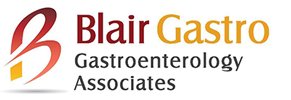What is Barrett’s Esophagus?
Barrett’s Esophagus is a complication of GERD, or gastroesophageal reflux. It results when the normal tissue that lines the esophagus changes to tissue resembling the lining of the intestine. There are no specific symptoms associated with Barrett’s Esophagus, although most patients with Barrett’s experience symptoms of gastroesophageal reflux. Some symptoms of Gastroesophageal reflux are heartburn, an acidic or sour taste in mouth (acid reflux), a dry cough, and difficulty swallowing. Patients with Barrett’s Esophagus have an increased, although small, risk of developing cancer of the esophagus (adenocarcinoma.) The gastroenterologists at Blair Gastroenterology Associates specialize in the diagnosis and treatment of Barrett’s Esophagus. If you have been diagnosed with this disorder and would like to speak to one of our staff, be sure to give us a call to set up an appointment.







